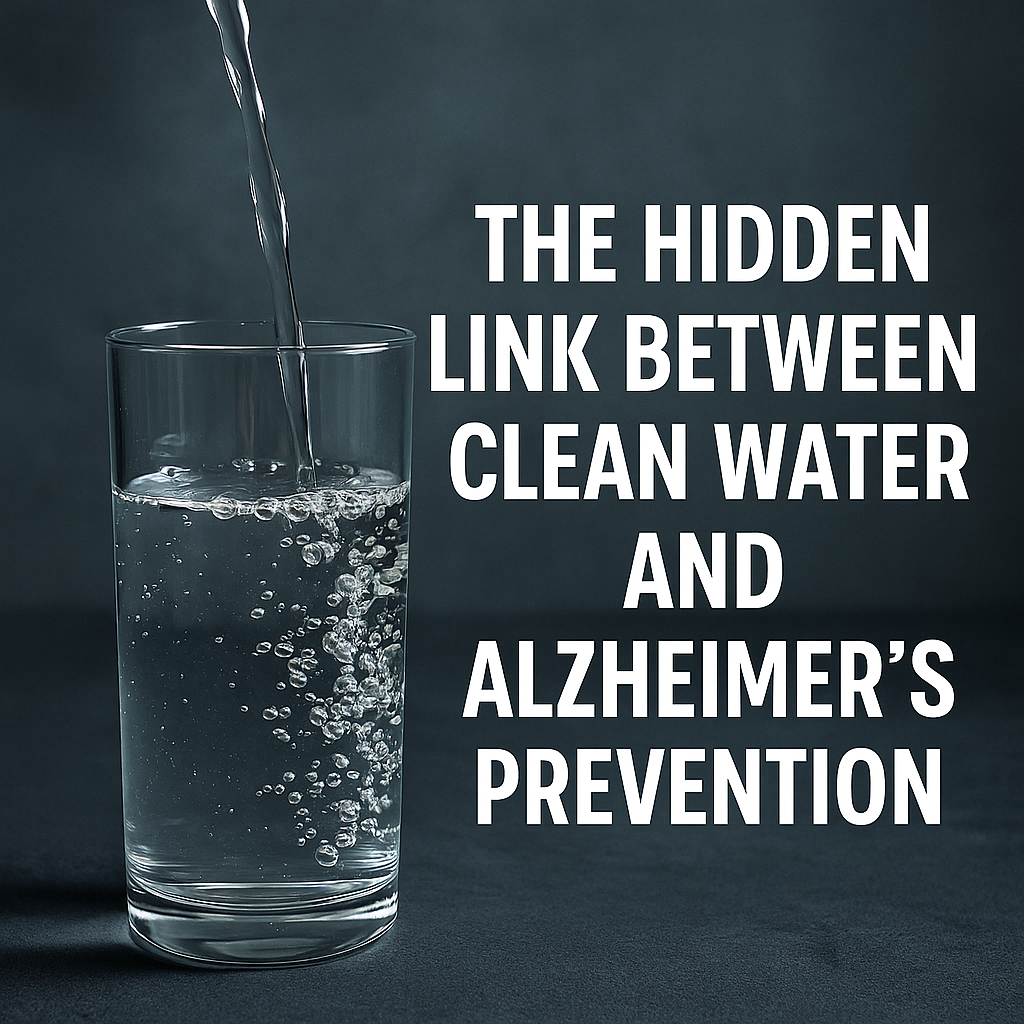Discover how drinking clean, low-TDS water can support brain health and potentially reduce the risk of Alzheimer’s disease.
As we observe Alzheimer’s Awareness Month, it’s crucial to explore all facets of prevention. While diet and mental stimulation are well-known factors, the quality of water we consume daily is equally significant.
The Importance of Clean Water for Brain Health
Water is essential for every bodily function, including brain health. Contaminants in drinking water, such as heavy metals and chemicals, can accumulate over time, potentially impacting cognitive function.
In the UK, tap water is treated to meet safety standards. However, it may still contain trace amounts of substances like:
- Lead
- Mercury
- Arsenic
- Fluoride
- Nitrates
- Chlorine
- Copper
- Iron
- Barium osmotics.co.uk+10tappwater.co+10uk-water-filters.co.uk+10simplexhealth.co.uk
These elements, even in low concentrations, can have cumulative effects on health. For instance, prolonged exposure to lead and mercury has been linked to neurological issues.nwl.co.uk+3simplexhealth.co.uk+3hartwater.co.uk+3
Understanding Total Dissolved Solids (TDS)
Total Dissolved Solids (TDS) measure the combined content of all inorganic and organic substances in water. The World Health Organization (WHO) suggests that TDS levels below 300 mg/L are considered excellent for drinking water .en.wikipedia.org+1billi-uk.com+1
High TDS levels may indicate the presence of unwanted contaminants. For example, my tap water contains various substances, including sodium fluoride, iron, lead, mercury, barium, nitrates, copper, chlorine, and arsenic. To ensure safety, drinking water should have a TDS reading between 0 to 150 mg/L. My distilled water has a TDS of 3 mg/L, indicating its purity.
Enhancing Water Quality
To further improve water quality, consider adding supplements like Plasma pH drops or ionic minerals. These can help balance the pH levels and replenish essential minerals lost during purification processes.
Conclusion
While there’s no cure for Alzheimer’s, preventive measures are our best defence. Ensuring the water we drink is free from harmful contaminants is a simple yet effective step towards protecting our brain health. By paying attention to the quality of our water, alongside a balanced diet and active lifestyle, we can contribute to long-term cognitive well-being.
Written by Milvia Pili (FNTP)
Registered Nutritional Therapist | Blue Zone Nutrition




